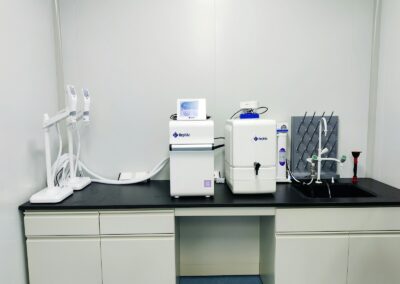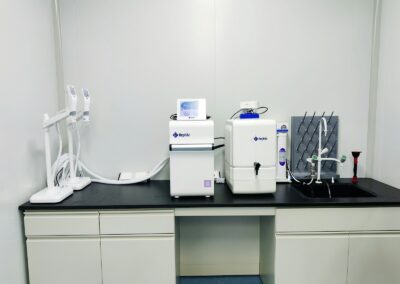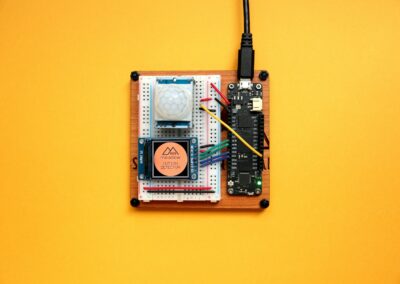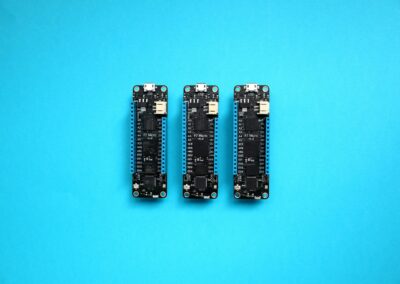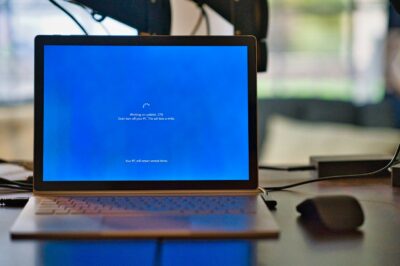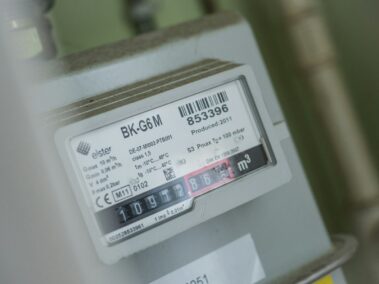The Transformative Power of IoT-Enabled Water Monitoring Systems
Harnessing Real-Time Insights with Advanced Sensors
The adoption of IoT-enabled water monitoring systems represents a major advancement in how businesses and municipalities manage water resources. These systems utilize advanced sensors and data analytics to deliver real-time insights into both water quality and consumption. For organizations operating in dynamic regions such as Saudi Arabia and the UAE, where water management is critical, these technologies offer invaluable tools for ensuring efficient and sustainable resource use.
IoT-enabled water monitoring systems consist of a network of interconnected sensors that continuously collect data on various water parameters, such as temperature, pH levels, and turbidity. This real-time data is transmitted to central systems where it is analyzed to provide actionable insights. By monitoring water quality and usage patterns in real-time, organizations can detect issues promptly, address inefficiencies, and ensure that water resources are managed effectively. This immediate visibility into water conditions enhances the ability to make informed decisions and implement timely interventions.
Moreover, the integration of IoT technology with data analytics allows for more sophisticated analysis of water usage trends and quality. Predictive analytics can forecast future water needs and identify potential problems before they become critical, enabling proactive management strategies. This capability is especially valuable in regions with complex water management challenges, such as those in Riyadh and Dubai.
Driving Efficiency and Sustainability Through IoT
The use of IoT-enabled water monitoring systems offers substantial benefits in terms of efficiency and sustainability. Real-time data allows organizations to optimize water usage by identifying and addressing inefficiencies quickly. For example, detecting leaks or unusual consumption patterns enables prompt corrective actions, reducing water waste and lowering operational costs. This level of efficiency is crucial for maintaining sustainable practices and supporting environmental stewardship in resource-scarce regions.
Additionally, these systems contribute to improved water quality management. By continuously monitoring water parameters, organizations can ensure that water remains within safe and acceptable ranges. This proactive approach helps in meeting regulatory compliance and maintaining high standards of water safety. In turn, this builds trust with stakeholders and customers, enhancing the organization’s reputation for reliability and responsibility.
The incorporation of IoT technology also supports broader sustainability goals by facilitating better resource management and reducing the environmental footprint of water usage. For businesses in the UAE and Saudi Arabia, demonstrating a commitment to sustainability through the use of advanced technologies can differentiate them in the marketplace and align with regional environmental initiatives.
Enhancing Business Success with IoT Water Monitoring
The strategic advantages of adopting IoT-enabled water monitoring systems are significant for business success. By leveraging real-time data and advanced analytics, organizations can enhance operational efficiency, reduce costs, and support sustainability initiatives. For executives and mid-level managers, integrating these systems into their water management strategies provides a competitive edge and positions the organization as a leader in innovation and environmental responsibility.
Effective implementation of IoT-enabled water monitoring systems requires robust change management practices and executive leadership. It is essential to ensure that all stakeholders are engaged and that the technology is integrated seamlessly into existing operations. Management consulting and executive coaching services can provide valuable support in navigating these changes and aligning the technology with the organization’s strategic goals.
Furthermore, the use of IoT technology in water management can lead to significant cost savings by optimizing water usage and reducing waste. This financial benefit, combined with enhanced operational efficiency and sustainability, contributes to the overall success and competitiveness of the organization.
Exploring Future Innovations in Water Monitoring Technology
As technology continues to evolve, the capabilities of IoT-enabled water monitoring systems are expected to expand further. Future developments may include enhanced integration with artificial intelligence (AI) and blockchain technology, offering even greater insights and security. AI algorithms could provide more advanced predictive analytics and anomaly detection, while blockchain could ensure the integrity and transparency of water data.
Additionally, the potential integration of IoT systems with the Metaverse could offer immersive management experiences, allowing for virtual simulations and real-time monitoring in interactive environments. These innovations will continue to drive advancements in water management, offering new opportunities for efficiency and sustainability.
For organizations in Saudi Arabia, UAE, Riyadh, and Dubai, staying at the forefront of these technological advancements will be crucial for maintaining a competitive advantage and achieving long-term sustainability goals. Embracing IoT-enabled water monitoring systems and exploring future innovations will ensure continued success in managing water resources effectively.
#IoTEnabledWaterMonitoring #RealTimeWaterQuality #DataAnalytics #AdvancedSensors #WaterConsumption #AI #Blockchain #UAE #SaudiArabia #Riyadh #Dubai




